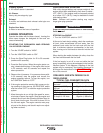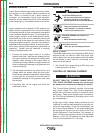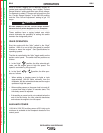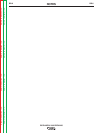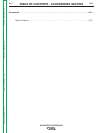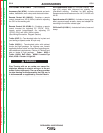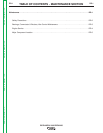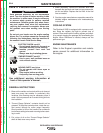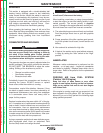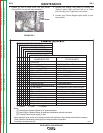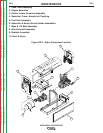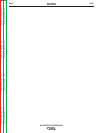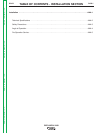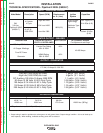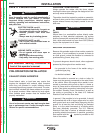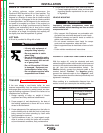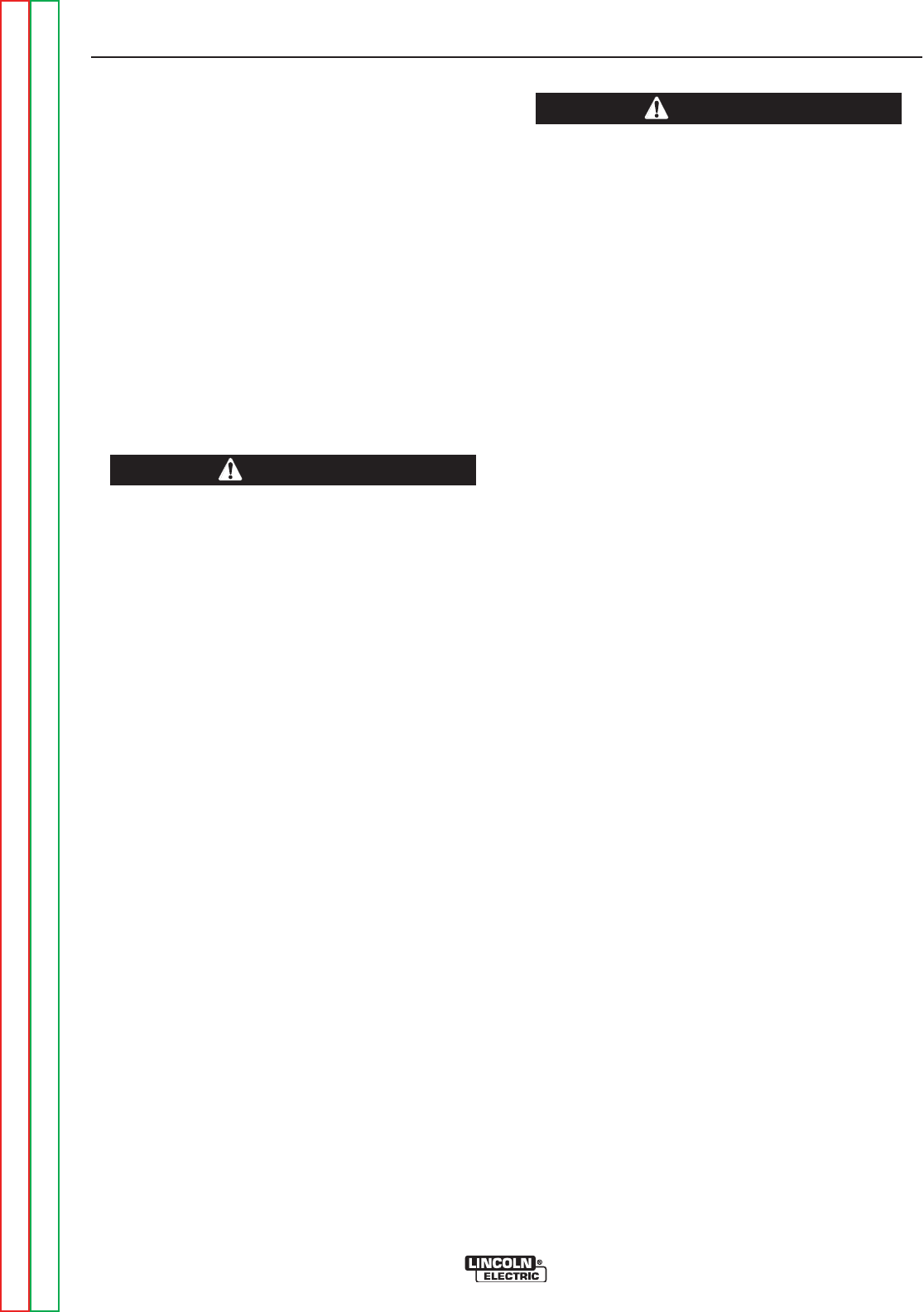
MAINTENANCE
DD-3 DD-3
PIPELINER® 200D PERKINS
BEARINGS
This welder is equipped with a double-shielded ball
bearing having sufficient grease to last indefinitely
under normal service. Where the welder is used con-
stantly or in excessively dirty locations, it may be nec-
essary to add one-half ounce of grease per year. A pad
of grease one inch wide, one inch long, and one inch
high weighs approximately one-half ounce. Over-
greasing is far worse than insufficient greasing.
When greasing the bearings, keep all dirt out of the
area. Wipe the fittings completely clean and use clean
equipment. More bearing failures are caused by dirt
introduced during greasing than from insufficient
grease.
COMMUTATOR AND BRUSHES
Uncovered rotating equipment can be dangerous.
Use care so your hands, hair, clothing or tools do
not catch in the rotating parts. Protect yourself
from particles that may be thrown out by the rotat-
ing armature when stoning the commutator.
------------------------------------------------------------------------
The generator brushes are properly adjusted when the
welder is shipped. They require no particular attention.
DO NOT SHIFT THE BRUSHES or adjust the rocker
setting. Shifting of the brushes may result in:
• Change in machine output
• Commutator damage
• Excessive brush wear
Periodically inspect the commutator and brushes by
removing the covers. DO NOT remove or replace
these covers while the machine is running.
Commutators require little attention. However, if they
are black or appear uneven, have them cleaned by an
experienced maintenance man using fine sandpaper
or a commutator stone. Never use emery cloth or
paper for this purpose.
Replace brushes when they wear within 1/4” of the pig-
tail. A complete set of replacement brushes should be
kept on hand. Lincoln brushes have a curved face to fit
the commutator. Have an experienced maintenance
man seat these brushes by lightly stoning the commu-
tator as the armature rotates at full speed until contact
is made across the full face of the brushes. After ston-
ing, blow out the dust with low pressure air.
Arcing or excessive exciter brush wear indicates a pos-
sible misaligned shaft. Have an authorized Field
Service Shop check and realign the shaft.
IDLER MAINTENANCE
Before doing electrical work on the idler printed
circuit board, disconnect the battery.
------------------------------------------------------------------------
When installing a new battery or using a jumper battery
to start the engine, be sure the battery polarity is con-
nected properly. The correct polarity is negative
ground. Damage to the engine alternator and the print-
ed circuit board can result from incorrect connection.
1. The solenoid plunger must work freely and not bind.
Dust the plunger about once a year with graphite
powder.
2. Proper operation of the idler requires good ground-
ing of the printed circuit board, current sensor and
battery.
3. Idler solenoid is activated for high idle.
4. If desired, the welder can be used without automat-
ic idling by setting the “Idler” switch to the “High”
position.
NAMEPLATES
Whenever routine maintenance is performed on this
machine - or at least yearly - inspect all nameplates
and labels for legibility. Replace those which are no
longer clear. Refer to the parts list for the replacement
item number.
PURGING AIR from FUEL SYSTEM
(Perkins 104.22 Engine)
Keep fuel clear of open flames or arcs, allow
engine to cool before working on the fuel system.
Wipe up any spilled fuel and do not start engine
until fumes clear.
------------------------------------------------------------------------
If the engine is running rough and you suspect air has
been trapped in the fuel system, (EG. the engine was
allowed to run out of fuel) perform the following steps
using qualified personnel:
WARNING
CAUTION
Return to Section TOC Return to Section TOC Return to Section TOC Return to Section TOC
Return to Master TOC Return to Master TOC Return to Master TOC Return to Master TOC



